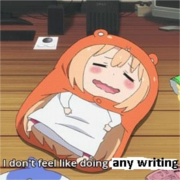|
GreyjoyBastard posted:I'm not exactly convinced that moving everything to a smaller-scale more local production is more sustainable - by and large it is the megafarms that do more with the resources they use, although there is definitely the issue that the same efficiency pushes that result in those advances tend to come from a mentality that isn't necessarily too concerned with externalities. If everyone tried to live off organic produce, guess what - that arable-land crunch we find deeply concerning would happen noticeably quicker and with a lot less room to adjust. Going by pure numbers/math when dealing with food security is not really an answer. Animal farming abuses animals, leads to antibiotic resistance, pollutes water supplies with an abundance of waste, and so on. For plants, large monoculture is unhealthy for plant disease resistance, and for large-scale farming soil erosion is problematic. You could read more in another thread devoted to that whole subject. There are methods of farming/growing crops that are healthier not only for the animals and plants being farmed but to our diets. I don't really get any guff for my personal life, and if I do it's something to do with being a hippie or tree-hugger. I just brush those comments off since they are usually joking, or if meant to be offensive are pretty weak. It's not like I sit around all day with friends talking about this either. It comes up occasionally only. I agree one person's efforts aren't going to make a difference on their own, but I'm not exactly alone in this lifestyle or thought process. There is and has been for decades a world-wide environmental movement from people with different backgrounds and cultures. The Rio Summit doesn't exist for nothing. On a more local scene, there is a huge controversy about expansion of oil sands pipelines. These are all basically individual people working together.
|
|
|
|

|
| # ? May 31, 2024 23:38 |
|
-Troika- posted:Yes, but currently the general public gets all Specifically, Carter banned fuel reprocessing because he believed reactor-grade waste plutonium could be used to make bombs. He even cited a bomb test where this was the case. However, that bomb test used plutonium from a Magnox reactor, which was far higher grade than the poo poo from most PWRs, but not considered "weapons-grade" by the military. As it stands, it's still physically impossible to make a weapon out of LWR waste plutonium, or at the very least none of the developed 1st world countries have figured out how to do it yet.
|
|
|
|
Your Sledgehammer posted:The difficult truth that we must be willing to confront is that climate change is a direct result of our use of technology.
|
|
|
|
4liters posted:No, climate change is a direct result of the choices we have made/had forced upon us by capitalism. Not all technology is mutually exclusive to preventing climate change and humanity needs people to have an educated and rational discussion about what to take forward, what needs to be improved and what to leave behind. It isn't helpful to throw your hands in the air and go off the sharpen your collection of spear points and digging sticks. God I wish we'd all switched to nuclear decades ago. Ugh.
|
|
|
|
the kawaiiest posted:Exactly. Technology is a wonderful thing. It is not the problem, it's the solution. If we use it right. Which we won't. We didn't even need to do that. A government subsidised solar panel or two on each house and some legislation to discourage energy use at night would have worked just as well.
|
|
|
|
shrike82 posted:Primitivism is a white middle-class conceit. Go to any developing country and try advocating it to a local and you're going to get laughed at. Someone forgot to tell South east asia about this. All the anarchists I know in indonesia and particularly the philipines all profess some sort of advocacy of the ideas. Heck its probably close to the dominant strand of the ideology in the philipines these days with all the earth first action and poo poo. I'm sure they'll all be excited to learnt they've all turned into white middle class people, life in the shitholes of quezon city probably gets a bit tiring after a while! I'd probably throw into the mix the "luddite" movements malaysia and india, but I guess as white people they don't count? Or maybe they do, I cant keep up with these pesky asian whites. duck monster fucked around with this message at 08:51 on Jun 19, 2012 |
|
|
|
4liters posted:No, climate change is a direct result of the choices we have made/had forced upon us by capitalism. Not all technology is mutually exclusive to preventing climate change and humanity needs people to have an educated and rational discussion about what to take forward, what needs to be improved and what to leave behind. the kawaiiest posted:Exactly. Technology is a wonderful thing. It is not the problem, it's the solution. If we use it right. Would either of you care to address my point that all technology, even the most beneficial, comes with a number of associated costs that are typically overlooked or ignored? We're at a point in time where we desperately need to look at things as they are in reality, not as we wish them to be. And Desmond, I'm not ignoring you - I'm really interested in what you're saying and I'll respond when I have some more time to reply 
Your Sledgehammer fucked around with this message at 09:47 on Jun 19, 2012 |
|
|
|
Your Sledgehammer posted:Would either of you care to address my point that all technology, even the most beneficial, comes with a number of associated costs that are typically overlooked or ignored? You are almost right, but not all technology does have a significant cost, particularly small scale stuff, and what you don't mention is that a lot of these costs can be mitigated. Where humanity hosed up and sealed our collective fates was when we started listening to the people who said we didn't need to bother with mitigating these costs because the cost to business would be too high.
|
|
|
|
Fatkraken posted:Conflict between neighbouring hunter gatherer bands is actually pretty hard to quantify either way. Archaeological evidence is scant, and modern groups are surrounded by so many agriculturalists that you can't extrapolate back their behaviours. However by examining a wide range of groups and using what evidence you can, with proper control for biases, you can come to some broad conclusions. Finally got a chance to really read this study, and I'm sorry it took so long to properly respond. I noticed that the majority of his data set sites are on the coast near seas (and wonder how many others were near other water sources; it is hard to tell on the map), where traditionally, due to the rich resources of sea and shore food, there is potentially more competition and less moving around. This jumped out at me right away after just recently reading more about the Haida, and their rich salmon fishery, on BC's coast. Bowles says he is using both prehistoric and historic data from tribes who did not have a complex hierarchy or any form of farming, yet everything I've read about the Haida (which seems to be from one of his sites, possibly the Tinglet too) is that pre-assimilation they practiced some horticulture and had at least a matrilineal structure in place, with some hierarchy--though Bowles says his study excluded those two things. The lateness of his data sets could mean that many of his sites were nascent agriculturists, like what was my first guess. This doesn't rule out warfare existed though, even among earlier hunter-gatherers. I can't fathom any human culture existing without some sort of inter-tribal warfare as long as they are not in some vacuum. Altruism would seem like not the only reason for skirmishes to exist too; what about problems brought about by marriages outside one's own band (i.e Haida potlatches, for instance, brought bands together partially for this reason) or competition over territory? Also, his numbers seem pretty high to me (46%). I didn't read anywhere (though may have missed it) where he was ruling out violent death due to animal encounters, either. Skirmishes such as this are still different than the agriculturists completely imposing and wiping out hunter-gatherers though. Anyway, interesting read, thanks, and sorry for the slight derail.
|
|
|
|
Your Sledgehammer posted:We're at a point in time where we desperately need to look at things as they are in reality, not as we wish them to be. We should be talking about switching to nuclear, or discussing renewables, or whatever. Talking about how we'll all hold hands and live in harmony with nature is a waste of time.
|
|
|
4liters posted:No, climate change is a direct result of the choices we have made/had forced upon us by capitalism. Not all technology is mutually exclusive to preventing climate change and humanity needs people to have an educated and rational discussion about what to take forward, what needs to be improved and what to leave behind. It isn't helpful to throw your hands in the air and go off the sharpen your collection of spear points and digging sticks. I'll never expect society to collectively act responsibly out of benevolence, wisdom, or even fear. If we are ever able to set ourselves on a sustainable course, I believe it will be because they found a lifestyle or social structures which satisfies the same desires they've been pursuing for the last 10,000 years, while still allowing them to live in equilibrium with the rest of their equilibrium. So in short, simply saying "we just have to be smarter/wiser/nobler" as advocating for the continuation of civilization is nonsense. I see it as exactly on par with primitivists who say "we have to be smarter/wiser/nobler" as advocating a return to primitive lifestyles. Both sides are appealing to a noble fantasy that never existed and will never exist. edit: and if you feel like I'm putting words in your mouth, I apologize, I know you didn't explicitly make some of these claims. I've extrapolated quite a bit, because I get the feeling that many people here actually do believe this stuff, and it's important to get it out in the open.
|
|
|
|
|
ANIME AKBAR posted:So I'm going to play devil's advocate a bit. I also don't think technology itself is the problem, but your argument (people need to be educated and rational) isn't convincing at all either, because what you appear to be suggesting is that we improve human nature itself, which is silly. Any solution that is based on people simply being "better" or "nobler" than they are now can't possibly succeed, because such a thing just can't happen. I agree with what you're saying here, you just missed the point I was making. What I am suggesting is that we don't allow a situation to develop again where a few people, by virtue of the power they wield, influence the direction of humanity for their own benefit and at the expense of the rest of us. What I am referring to is the campaign by the fossil fuel industry (plus a few other industries) to mislead people and influence government policy to prevent us from acting to mitigate some of the inherent costs associated with some technology used by these people. We could have had a society that provide for people's desires and was sustainable but making the change to it would have been costly to people who had vested interests in the current system so it never happened. It's not so much a change of human nature but rather a change to common power structures and perhaps the way democracy is executed.
|
|
|
|
Do any of you see biofuels generated from cellulosic ethanol as a viable option for the future or is that just a pipe dream?
|
|
|
|
I don't think the energy balance works out, distillation is a loving inefficient process in addition to all the other harvesting, transport and processing you have to do. I think using clean electricity to create hydrogen from water might become popular though.
|
|
|
|
ANIME AKBAR posted:So I'm going to play devil's advocate a bit. I also don't think technology itself is the problem, but your argument (people need to be educated and rational) isn't convincing at all either, because what you appear to be suggesting is that we improve human nature itself, which is silly. Any solution that is based on people simply being "better" or "nobler" than they are now can't possibly succeed, because such a thing just can't happen. To play devil's advocate even harder for a different position, what are we doing when we prescribe psychiatric medications if not trying to change human nature? As our understanding of psychology, neuroscience and genetics improve, so will our ability to modify human behaviour -- in short, if we don't like human nature, that's something technology can help us with too. Whether we should go down that path is another matter, but it's clearly something we're already trying to do with some success.
|
|
|
|
Thuryl posted:To play devil's advocate even harder for a different position, what are we doing when we prescribe psychiatric medications if not trying to change human nature? Changing human nature may or may not be what psychiatric medications do (I have no idea either way), but we certainly don't frame it that way. Generally we choose to view the medication as correcting an "imbalance", returning the brain to some ill-defined baseline or normal state.
|
|
|
|
Torka posted:Changing human nature may or may not be what psychiatric medications do (I have no idea either way), but we certainly don't frame it that way. Generally we choose to view the medication as correcting an "imbalance", returning the brain to some ill-defined baseline or normal state. If the primitivist argument is correct (or even if it isn't, really), many cases of mental illness are a result of a failure to adapt to the conditions of modern society. If we alter someone's brain chemistry so that they're better able to adapt, isn't that changing their nature? If I were subjected to some medical procedure that allowed me to be submerged in ice water for hours without suffering hypothermia, we'd say an aspect of my nature had been changed, even if the only effect is that my body can continue to function "normally" under "abnormal" conditions. About 10% of the US population will take antidepressant medication at some time during 2012. When you look at that big a segment of the population taking drugs with the express purpose of altering their mood and behaviour, I'd say that could reasonably be called an attempt to change human nature. It doesn't always work, but there's no shortage of active research to build a better antidepressant. EDIT: Anyway, I don't want to get too hung up on terminology. My main point is that to whatever extent modern civilisation is incompatible with human happiness, there will be technological efforts to correct that incompatibility, and we're already seeing the beginning of those efforts today. So if one is the kind of person to lean on "more technology" as a solution to every problem, "you can't change human nature" is not a knockdown argument. Thuryl fucked around with this message at 14:08 on Jun 19, 2012 |
|
|
|
Thuryl posted:To play devil's advocate even harder for a different position, what are we doing when we prescribe psychiatric medications if not trying to change human nature? As our understanding of psychology, neuroscience and genetics improve, so will our ability to modify human behaviour -- in short, if we don't like human nature, that's something technology can help us with too. Whether we should go down that path is another matter, but it's clearly something we're already trying to do with some success. Psych meds are for treating pathologic human conditions, and depending on the condition they're treating are more or less effective. Using the same label for disease states as we use for desired, normal human behavior seems like a stretch to me. And, holding out for neuroscience to solve our problems isn't any different than holding out for engineering solutions to solve our problems.
|
|
|
|
Your Sledgehammer posted:Would either of you care to address my point that all technology, even the most beneficial, comes with a number of associated costs that are typically overlooked or ignored? I think you'd find that they would agree with you. There are hidden costs to everything we do, even stuff we don't do with technology. There are certainly technologies that have externalized costs that we can completely handle. In fact, hunter gatherers use technology as well. You're going to have to be more specific than just "technology". Humanity has spent the last tens of thousands of years evolving and much of that has been heavily influenced by our use of technology. For example, cooking. a lovely poster fucked around with this message at 14:12 on Jun 19, 2012 |
|
|
|
Yiggy posted:Psych meds are for treating pathologic human conditions, and depending on the condition they're treating are more or less effective. Using the same label for disease states as we use for desired, normal human behavior seems like a stretch to me. And, holding out for neuroscience to solve our problems isn't any different than holding out for engineering solutions to solve our problems. As far as labels go, see my edit above. For the rest, well, it isn't any different -- that's precisely my point. Someone who's willing to posit as-yet-undeveloped engineering solutions to the problems of climate change shouldn't be discouraged by arguments about human nature, because they may as well be equally willing to posit as-yet-undeveloped neuropsychiatric solutions to the problems of human nature. Both kinds of solution seem about equally plausible in the long run: if you can treat the biosphere as an engineering problem, then you can treat the people living in it as an engineering problem too. Conversely, someone who doesn't think it's reasonable to be optimistic about engineering solutions doesn't gain any additional support for their argument by making claims about human nature. Thuryl fucked around with this message at 14:17 on Jun 19, 2012 |
|
|
|
a lovely poster posted:I think you'd find that they would agree with you. There are hidden costs to everything we do, even stuff we don't do with technology. There are certainly technologies that have externalized costs that we can completely handle. In fact, hunter gatherers use technology as well. You're going to have to be more specific than just "technology". Exactly. The complexity of the technology isn't really an indication of the severity of it's impact. For instance the 'firestick farming' practised by the Australian Aboriginals was the major reason why the megafauna went extinct.
|
|
|
|
Your Sledgehammer posted:Would either of you care to address my point that all technology, even the most beneficial, comes with a number of associated costs that are typically overlooked or ignored? It's up to all of the policy analysts to decide when it's appropriate to regulate technologies so that the producers or users pay for the external costs and when it's appropriate to provide incentives for technologies that have far lower associated costs. And it's up to the politicians to listen to them (which admittedly doesn't always happen). But, more to this general point that all technology comes with costs, this is either not entirely true or not entirely relevant. For example, you can dump pollutants into a river at low enough rates that the pollutants will never reach a concentration that will effect either the environment or people, even those sensitive to the pollutant. In this situation, the only real cost would be that you wouldn't be able to dump quite as much of the same pollutant into the river before you get to levels that would actually effect something. It's the same thing with emissions - there are certain levels of greenhouse gas emissions that we can live with and that wouldn't really effect us. You can nitpick anything and go "well what about the small amount of fuel you'd have to burn to make it or what about this waste product?" The reality is that the Earth can handle quite a bit of stuff being added to it - we're just currently overshooting that amount by a lot.
|
|
|
|
Inaction Jackson posted:There are many, many people who do nothing but try to quantify these costs and propose solutions to them. The existence of external costs to technology is a reason why one of the essential duties of government must be to ensure that those costs are reflected in the price of that technology.
|
|
|
|
4liters posted:Where humanity hosed up and sealed our collective fates was when we started listening to the people who said we didn't need to bother with mitigating these costs because the cost to business would be too high. Or society's tendency to collectively say "gently caress our great-grandkids, we'll all be too dead to care." A good portion of the population, including the 'sustainable lifestyle' crowd, knows that the externalities of our resource usage will be harmful, but they just won't do anything of real consequence about it despite this knowledge. I really don't expect "but I drove a Prius!" to be a convincing mitigating argument for someone's share of responsibility for how the world might be in fifty years. GreyjoyBastard posted:I'm not exactly convinced that moving everything to a smaller-scale more local production is more sustainable - by and large it is the megafarms that do more with the resources they use, although there is definitely the issue that the same efficiency pushes that result in those advances tend to come from a mentality that isn't necessarily too concerned with externalities. If everyone tried to live off organic produce, guess what - that arable-land crunch we find deeply concerning would happen noticeably quicker and with a lot less room to adjust. I agree that local production as we normally think of it would lead to a land crunch, at least in more populated areas. Start reducing the wastes of arable land called lawns in favor of home food production at a societal scale by even a fraction, and then we might get somewhere. I haven't bought a vegetable at the store since April, and I'm keeping two families stocked with them using only 44 square feet of raised beds and containers. It's all about quick-return crops, planning ahead, and seasonal eating. Urban families would have a harder time since using only containers is extremely limiting, but a large push toward community gardens on abandoned and vacant lots would alleviate this quite a bit, especially in depressed areas with plenty of empty and dilapidated pieces of land.
|
|
|
|
TheFuglyStik posted:Start reducing the wastes of arable land called lawns Let's start with cemeteries first. Useless landfills for corpses that have been prevented from rotting for no good reason.
|
|
|
|
I don't understand the reasoning behind why primitivism would necessarily be the only possibility were headed towards. Referring to the metastudy I posted earlier in this thread: klaivu posted:
To me, the study was shocking stuff. It's a very recent metastudy, as rigorous science as you can find, and the most pessimistic thing I've read in a while. It's also the result of a workshop meeting. And here's what one attendee had to say: http://pandasthumb.org/archives/2012/06/predicting-a-st.html posted:Global state shift in the biosphere could have all kinds of negative impacts on human health, economics, politics, and general well-being. The real question we are raising is not about whether or not life or humans are doomed; the real question is about what kind of world do we want to live in. A state-shift in the biosphere would basically mean a conversion of most of the Earth’s surface to the production of food and energy for humans; a world dominated by cows and corn fields instead of natural ecosystems; a world where humans are fighting each other for ever-diminishing nonrenewable resources while also having to cope with rising temperatures and sea levels, the spread of tropical insects and diseases, and homogenized ecosystems consisting mostly of human-tolerant, easily-dispersable weeds. It would be a world without any wildness left. Very different from the local-economy primitivism as is touted in this thread as the only logical conclusion of humanity's moral choices.
|
|
|
|
klaivu posted:
I don't think we'll see that kind of outcome over any sort of longhaul because if that ecological state came to be it would be too prone to collapse. Homogenized ecosystems and monocultures devoid of biodiveristy are susceptible to pandemics, collapse and extinction. If what's left of the world become high yield monocultures of crops and livestock, all it takes is one blight to cause famine and instability. That picture of ecological control and persistent civilization is still stuck in the mode of thinking that civilization on this scale can proceed in spite of the homogenization that would be brought by our ecological destruction and agriculture. That's the sort of thing that's the problem, I just don't see us rolling with those punches. A largely homogenized biosphere of monocultures like that lacks the necessary diversity, of both species and those species' genetic diversity, to continually adapt to what will certainly be a more geologically an meteorologically dynamic world.
|
|
|
|
Lots of good posts in the last couple pages, particularly Sledgehammer, I'll find a way to respond to your post when I have some more time, but suffice it to say the imagery I have in my own mind about "culture" is similar to the metaphors you deploy in the second half of your post. I still don't know if it's proper to objectify the native/noncivilized/primitive person like you do, but it goes a long way towards explaining the perspective.the kawaiiest posted:You're the one looking at things as you wish them to be if you're actually entertaining the possibility that people will return to a more primitive lifestyle. If a collapse does occur, people will work to rebuild civilization as we know it. They're not going to say "welp I guess that technology stuff was real icky, time to go live in a hut with no running water". So what you're saying is that any discussion of possibilities which don't fit under the hegemony of the contemporary capitalist-technofetishist status quo is stupid and a waste of time? I've never seen an acceptable answer to my own critique of nuclear energy, which is that the perpetuation of cheap and plentiful energy is simply a means to the perpetuation of global capitalism (which has already resulted in the deaths and disenfranchisement of hundreds of millions, at a minimum, and shows no signs of slowing). At the rate technology-backed capitalism destroys, the pseudo-genocidal pipe dreams of the naive primitivists might actually be preferable from a utilitarian perspective. We can jack off over nuclear as much as we want, but the fact remains that for all reasonable people, and good environmentalists who desire the collapse of Western culture, switching to renewable energy has the fortunate side effect of forcing a reduction in our energy consumption.
|
|
|
|
I'm not always too eloquent with words and am prone to frustration at trying to explain ideas when people don't read what I write. But this video (cross-posted from the Canada thread) pretty much sums up how I feel about capitalist technology that makes our lives convenient and ruins indigenous people's lives, rainforests, water supplies, etc. A primitivist ideology would give these people their rainforest back and do without whatever that copper/gold is going to give us. Anytime someone arrogantly equates stupid tropes about kumbayahs and harmony with nature to typify people with primitivist ideas, it comes across as extremely arrogant and reduces anyone who lives with less to a stereotype. Heck, my own grandparents from the back hills of Appalachia had no running water when I was a kid. Their lives were meaningful and happy both before they got running water and afterward. There are billions of others past and present who could say the same. http://www.cbc.ca/thenational/thenewconquistadors/ Edit: Kawaiist, that is definitely a sad and real problem you have there. I and Your Sledgehammer and others have given similar anecdotes with loved ones or our own selves. We've also directly replied to this position, but I don't think you've read them? Maybe backtrack a few pages and check out some links and stuff? You have to realize that the primitivist critique is not a prediction, not an obtainable objective, but an ideal. (Anarcho-primitivists may suggest otherwise, but so far in this thread there are none.) That ideal is based on life as we don't know it, to be honest. It's life without a lot of terrible stuff that capitalist technology has done. To be honest, this goal is not going to ever happen in our lifetimes. It may if capitalist technology destroys us, but if that were to happen, then where is your health care then? Like I said earlier, you're dreaming and/or crazy if you think that in such a scenario there would be a system in place to help any of us or our loved ones who are in dire need of some sort of support system like that. That reality is not something primitivists in this thread support, dream of, or dance around a tree whilst singing Kumbayah (in your version) about. If we were to re-develop past such a terrible scenario, we aren't going to have the resources to get health care back as we know it today. Once again, as I said from the get-go, that is not so much a primitivist objective but a capitalist-technological caused problem. There are a lot of layers to discussing this. It's challenging; it's not easy. I've not really liked any dialog with you so far because you jump in and out of this thread without reading a lot of what is posted. That doesn't mean I don't sympathize with you or care about your well-being. I just wish a discussion of this size could be a bit more serious rather than cheap-shotting and weak arguments. Jenny of Oldstones fucked around with this message at 08:17 on Jun 21, 2012 |
|
|
|
deptstoremook posted:So what you're saying is that any discussion of possibilities which don't fit under the hegemony of the contemporary capitalist-technofetishist status quo is stupid and a waste of time? A happy life without access to reliable healthcare only exists for healthy people. If you have ANY physical or mental health problems whatsoever then you'll be hosed and miserable for the rest of your life. If you get hurt and get an infection then you will die a slow and painful death. Cavity? Tough. Cancer? Goodbye. If you're a woman you will no longer have your sexual freedom because you won't have access to reliable birth control. If you're pregnant you won't have access to prenatal care for you and your child. If your child is not positioned correctly when you go into labor or there are other problems during labor then you or your child, or possibly both of you will die. If someone rapes you, you will either end up risking your life (and loving yourself up emotionally even more) by having the child or risking your life by having an abortion without the proper equipment. There will be no treatment for STDs. There will be no vaccines for your children. The list goes on and on and on. It doesn't even matter how good an idea primitivism is (not that it is a good idea), because it won't happen anyway -- people will never, ever accept something like that no matter what happens. They will keep trying to put civilization back together. The current system is completely broken but replacing it with another broken system isn't a better solution. Yes, technology-backed capitalism kills a bunch of people, but so would this. We can use technology to stop hurting the environment at the rate at which we are hurting it now, laws and regulations can be put into place. They're not being put into place because people are greedy, selfish assholes, not because the only way to fix this problem is to abandon all modern technology. Switching to nuclear would mean no more coal and that alone would make a huge difference and save a significant number of lives as well. Population control is another issue and a very complicated one but "couples are only allowed one child" is much more likely to be accepted by the general public than "no reliable health care, no electricity and no running water but you can have as many kids as you like (if you live)". e: also I'm not pro-capitalism, I just want reliable health care. I don't care where it comes from as long as it's reliable and everyone has access to it. Show me a primitivist solution that includes that and doesn't let people starve to death because they can't grow poo poo where they live and I'll have no problem with it at all. Like I said before, I'd be in an Earthship growing my own food by now if I could. I can live just fine without air conditioning and computers, it's nothing I haven't done before. the kawaiiest fucked around with this message at 07:12 on Jun 21, 2012 |
|
|
the kawaiiest posted:A happy life without access to reliable healthcare only exists for healthy people. If you have ANY physical or mental health problems whatsoever then you'll be hosed and miserable for the rest of your life. If you get hurt and get an infection then you will die a slow and painful death. Cavity? Tough. Cancer? Goodbye. If you're a woman you will no longer have your sexual freedom because you won't have access to reliable birth control. If you're pregnant you won't have access to prenatal care for you and your child. If your child is not positioned correctly when you go into labor or there are other problems during labor then you or your child, or possibly both of you will die. If someone rapes you, you will either end up risking your life (and loving yourself up emotionally even more) by having the child or risking your life by having an abortion without the proper equipment. There will be no treatment for STDs. There will be no vaccines for your children. The list goes on and on and on No, you see, if you fall sick, you will be cared for by your children and the members of your tribe and if you stay crippled, they'll make you their shaman. Furthermore, even if you die from your illness/injury (which is pretty likely), at least you're gonna have a wholesome death, surrounded by your family (or wolves, if they decide to move on and leave you behind) and unspoiled by the horrors of the Western healthcare system.:human being: That was the point I wanted to make: Even if we would be forced to live in small hunter-gatherer groups after a collaps, every member of the first (survivor) generation would remember that in the earlier days, they did not have to die from an infection they caught from a wound. What kind of human being would go forward with that knowledge in their heads and say "Nope, not longing for the past and the benfits I have experienced, gonna stay in my tipi and die a slow natural death for the benfits of our children, who might accept this lifestyle because they never knew anything different": It's just not the way things will work. Therefore, I still treasure primitivist critique for shedding light on the trappings of civilization, but would never seriously discuss a practical primitivist solution (because it's wishful thinking). With a more complex type of group organization reemerging as a given, I'd rather discuss syndicalist ideas, which are at least incorporating the concept on a basic level and try to keep civilisation as beneficial and simple as possible. Sorry, not trying to paint you as a crazy survivalist Desmond, you said you're not actively striving for a future hunter-gatherer society, but I think we should still strive for a discussion of a more pragmatic approach -with all the benfits of the hunter-gatherer form of society in mind, but also remembering that there won't be a way back. Therefore: Do we have any anarcho-syndicalists here or someone with more detailed knowledge on communes? SavageGentleman fucked around with this message at 09:35 on Jun 21, 2012 |
|
|
|
|
SavageGentleman posted:No, you see, if you fall sick, you will be cared for by your children and the members of your tribe and if you stay crippled, they'll make you their shaman. Furthermore, even if you die from your illness/injury (which is pretty likely), at least you're gonna have a wholesome death, surrounded by your family (or wolves, if they decide to move on and leave you behind) and unspoiled by the horrors of the Western healthcare system.:human being: quote:That was the point I wanted to make: Even if we would be forced to live in small hunter-gatherer groups after a collaps, every member of the first (survivor) generation would remember that in the earlier days, they did not have to die from an infection they caught from a wound. What kind of human being would go forward with that knowledge in their heads and say "Nope, not longing for the past and the benfits I have experienced, gonna stay in my tipi and die a slow natural death for the benfits of our children, who might accept this lifestyle because they never knew anything different": What is your pragmatic approach? Forget hunter-gatherer, which is a model. What is your idea of how society would function/re-build?
|
|
|
|
deptstoremook posted:So what you're saying is that any discussion of possibilities which don't fit under the hegemony of the contemporary capitalist-technofetishist status quo is stupid and a waste of time? I've never seen an acceptable answer to my own critique of nuclear energy, which is that the perpetuation of cheap and plentiful energy is simply a means to the perpetuation of global capitalism (which has already resulted in the deaths and disenfranchisement of hundreds of millions, at a minimum, and shows no signs of slowing). At the rate technology-backed capitalism destroys, the pseudo-genocidal pipe dreams of the naive primitivists might actually be preferable from a utilitarian perspective. I don't know, technological and medical breakthroughs (which have, at least for the last several hundred years, been funded and perpetuated by global capitalism) probably tip the scales against primitivism. I mean, penicillin alone has to be skewing the ratio like crazy. Barring that, your post is one homorapiens short of parody, man. We shouldn't have extremely cheap, plentiful energy because...we don't deserve to have easier lives due to the inherent evils of capitalism that got us here, or something? It seems like you're going pretty black and white on this. Desmond posted:I know you're joking, but speaking as someone who watched my father die in a very modern day nursing facility where absolutely none of the other 100s of patient's family or friends (my mom and I went twice or three times a day) came to visit them more than once a month, if ever, you're painting an good picture. I think if I had the choice between dying in a hospital at age seventy-five (but my jerk kids) don't come to see me and dying at age forty of a treatable infection caused by a broken leg because we don't have real healthcare anymore (but my jerk kids are totally there in the adobe hut with me while it happens) I think I'm gonna go with the first one.
|
|
|
|
Wolfsheim posted:I think if I had the choice between dying in a hospital at age seventy-five (but my jerk kids) don't come to see me and dying at age forty of a treatable infection caused by a broken leg because we don't have real healthcare anymore (but my jerk kids are totally there in the adobe hut with me while it happens) I think I'm gonna go with the first one. e: and also the folks who have no one with them at the hospital are alone because they've got no one left who cares about them. It wouldn't make any difference if they were in a hut somewhere, they'd still be dying alone. They're not in that situation because capitalism and modern technology put them there, they're in that situation because they have a lovely family, or no living friends/relatives.
|
|
|
|
Can you all do away with the adobe hut poo poo? Regardless, I'm done with this thread until someone else with half a brain posts in it. (USER WAS PUT ON PROBATION FOR THIS POST)
|
|
|
Desmond posted:Well, you lost me on "forced" since in that scenario nothing would be forced; it would just happen. In that scenario, people would simply make do with what they have. What would they have? There would be no tabula rasa -people wouldn't be living in empty Savannahs after a collapse event. The world would still be filled with the remains of infrastructure and cities. With those remains, most of the difficult problems that were posed to those hunter-gatherers who first started with agriculture - for example the lack of robust materials to break the soil or cut trees - would be much easier solved: There would be massive quantities of usable metal lying around, without that long and difficult process in which people had to find out why and how to melt it. There would also be many functioning remains of our infrastructure and theoretically lots of usable plants - because we killed off most of those who seemed unusable to us. So no matter how few people survive, after a while people would do just the thing you said: "make do with what they have". Why should they decide against using the ressources at their disposal, if not for some kind of crazy taboo? If you can find a logical explanation for that,you are very welcome to do so. So syndicalist ideas accept that it's very much unavoidable for that level of organization to develop; they try to keep it stable at this level. With the focus on smaller, self-organized agricultural communities (with attempts at recovering modern means of production, of course also worker-organised), where everybody has equal say in all matters (only works on a small-scale level) and ressources are shared, they hope to keep at least some advantages from today's level of technological progress while avoiding hierarchies and unsustainable growth. But just as the talks of the hunter-gatherer stage, it is just the idle hope for a return of sustainable modes of living - one that will probably not be realized. If it would ever come to a collosal collapse of civilisation like this, history will very likely repeat itself. The new agricultural centers will grow and expand until they will compete for ressources and the whole cycle of killing and conquest will start anew: New warlords, kings, dictators - its growth will just stop on a lower level, because there will be no more sources of cheap fossil energy. For this reason I hope for a slow collapse that will allow us to make at least a part of our technological progress survive into less-centralized forms of social organisation(stuff like easily producable solar cells, etc) and help more of us survive at a higher level, so we don't have to do the same poo poo again (maybe this time without the price capitalism asks of us and all following generations). I think we have that in common, it's just the proposed scale of regression that makes the difference between our perspectives -´where we want to draw the line between the useful benefits of technology and its trappings (inequality, exploitation, stuff blowing the gently caress up). I'm not even sure if it will be the decision of our generation. We will be more busy administering/surviving the decay of the old system, but we can set some useful processi in motion. Double edit: I cannot type for poo poo! SavageGentleman fucked around with this message at 14:09 on Jun 21, 2012 |
|
|
|
|
Attempts at restoring modern means of production wouldn't be worker-organized, they'd be organized by whichever local leaders are smart enough to realize this is a good idea. Those leaders will take care of organizing workers (either through persuasion or force). In the absence of a governmental structure, people are going to flock to whoever can best protect them from that rear end in a top hat down the road who keeps stealing poo poo from them and killing their friends. And you can bet that in such a world as you envision there's going to be a lot of those people, since with a breakdown of society comes a breakdown of law and order.
|
|
|
-Troika- posted:Attempts at restoring modern means of production wouldn't be worker-organized, they'd be organized by whichever local leaders are smart enough to realize this is a good idea. Those leaders will take care of organizing workers (either through persuasion or force). That's why I say concepts like this might always stay a pipe-dream - because war...war never changes. Still, self-organized coommunities are not completely defenseless though. Think of the Paris Commune of 1871 or Spanish anarchist communes in the civil war. They still got hosed in the end (in Spain thanks to Soviet sabotage), but could sustain massive pressure and external aggression before they were defeated. However,it is very unlikely that the future will see the global destruction of centralised government and the return of warlords in a Mad Max-like war for survival. In a slow dissipation of centralisation, there might be the chance for alternative models to develop peacefully (on a local level) as long as they stay under the patronage of the surviving states.
|
|
|
|
|
the kawaiiest posted:Nope what I'm saying is that primitivism will never happen and thus it's a waste of time to discuss it. Listen, I get where you're coming from 100%. My parents are in the exact (or worse) position that you're describing. Thanks to insane good luck I've been enmeshed within the dominant bourgeois order and I now have access to all those things you're talking about, but I know for a fact that my father will die of something dumb as poo poo because he doesn't have access to health care. My mother will probably die in a hospital somewhere because she's permanently disabled and on SSD. The thing is that the "good life" that you're describing only really exists under the status quo for certain privileged people in certain privileged countries. As I'm sure you well know, if you're poor and disabled you're not getting poo poo. If you're homeless in America and have an infected cut, you could die just the same as if you were a hunter-gatherer, except thankfully somebody might beat you to death before the massive infection sets in. So I guess what I'm saying is this plank of opposition to primitivism (and there are many) is actually the response of a privileged bourgeois subject. You're making the wildly inaccurate assumption that most people under multinational capitalism have access to health care and reproductive services. quote:We can use technology to stop hurting the environment at the rate at which we are hurting it now, laws and regulations can be put into place. They're not being put into place because people are greedy, selfish assholes, not because the only way to fix this problem is to abandon all modern technology. Switching to nuclear would mean no more coal and that alone would make a huge difference and save a significant number of lives as well. Population control is another issue and a very complicated one but "couples are only allowed one child" is much more likely to be accepted by the general public than "no reliable health care, no electricity and no running water but you can have as many kids as you like (if you live)". Now who's living in the realm of fantasy? If you think this kind of systemic change is possible under the status quo you're dreaming. Environmental advocacy is more of a eulogy than a war cry. And please quit that population control poo poo, which again is symptomatic of your position as a first-world liberal: we're having fewer kids, so why don't you? We all know who you're talking about when you talk about limits on reproduction, and it's not the sterile, gentrified Western "democracies." quote:e: also I'm not pro-capitalism, I just want reliable health care. I don't care where it comes from as long as it's reliable and everyone has access to it. Wolfsheim posted:I don't know, technological and medical breakthroughs (which have, at least for the last several hundred years, been funded and perpetuated by global capitalism) probably tip the scales against primitivism. I mean, penicillin alone has to be skewing the ratio like crazy. It's reasonable enough that you see correlation as causality, because capital takes great pains to position itself as the first cause of all things. But there is no reason these breakthroughs needed to have been yoked to capital, that they could not persevere without it, and that scientific discovery couldn't continue after all the oppressors' blood runs through the streets. On your second paragraph, people who are for cheap energy often neglect to consider what we're using that cheap energy for. At present, it's used to preserve and spread things like suburban sprawl, maquiladoras and unfair global labor practices, disposable and irresponsible consumer goods, and industrialized agriculture. Are those things you would like to see preserved?
|
|
|
|

|
| # ? May 31, 2024 23:38 |
|
deptstoremook posted:It's reasonable enough that you see correlation as causality, because capital takes great pains to position itself as the first cause of all things. But there is no reason these breakthroughs needed to have been yoked to capital, that they could not persevere without it, and that scientific discovery couldn't continue after all the oppressors' blood runs through the streets. Sure, but divorce the two and you're left with a lot of hypotheticals as to what would've happened if all of known history didn't consist of rich people loving poor people. quote:On your second paragraph, people who are for cheap energy often neglect to consider what we're using that cheap energy for. At present, it's used to preserve and spread things like suburban sprawl, maquiladoras and unfair global labor practices, disposable and irresponsible consumer goods, and industrialized agriculture. Are those things you would like to see preserved? I'm not necessarily a fan of those things. I don't object to, for example, iPads on a moral level, outside of the fact that the people building them are subjected to hellish subhuman working conditions that can be considerably improved to non-slavery standards while having a pretty insignificant impact on the price/bottom line/etc. And I definitely see that as a clear example of lovely oppressive capitalism; but one that could be refined and fixed, not one that needs to be demolished entirely. Suburban sprawl: if nuclear energy was the magic bullet that made it sustainable and/or not hugely wasteful the way it is now, who cares? Same with industrialized agriculture.
|
|
|























